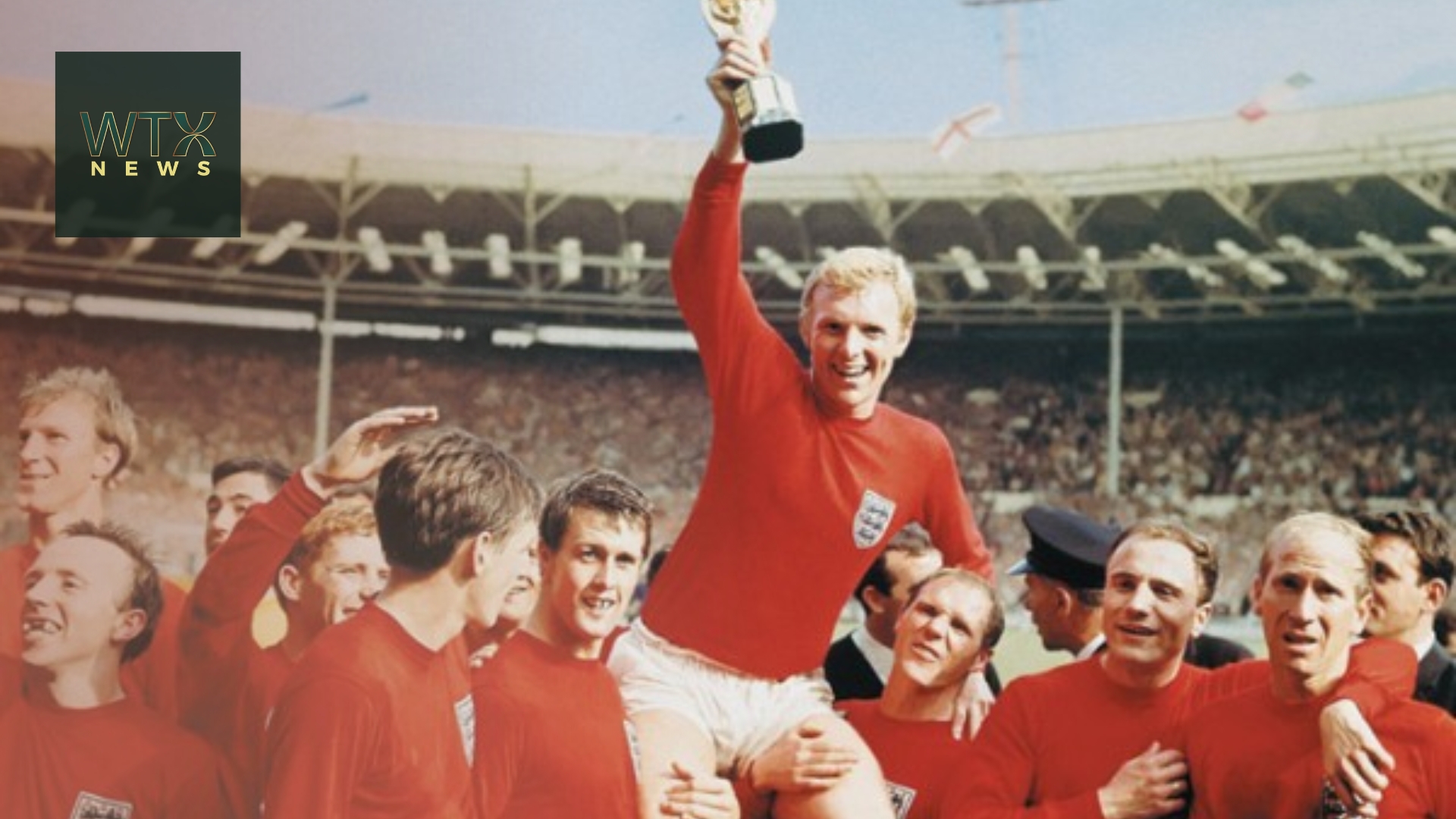England won their first and so far only World Cup in 1966 – at home at Wembley. It took 36 years for the World Cup to be hosted by the nation where the beautiful game was first played.
The tournament took place across seven towns and eight stadiums and featured 16 teams.
Wembley Stadium – with a capacity of nearly 100,000 people, hosted nine matches including the final and all of England’s games.
This tournament saw the introduction of drug testing, and flood lights and was broadcast via satellite.
European teams dominated – making up more than half of the main draw, there were squads from the Americas and North Korea – the only Asian representative.

African countries boycotted the tournament after their demand for a guaranteed spot in the main draw wasn’t met.
England opened the tournament with a lacklustre draw against Uruguay, but both teams make it into the knockouts. Other European teams and Argentina also advanced and North Korea sprang a surprise by qualifying for the quarterfinals after beating Italy.
Portugal – 1966 winners of the golden boot, thanks to striker Eusebio’s nine goals, made it to the semis only to be knocked out by England.
England and West Germany made it to the Wembley final – where the game turned out to be a classic.
England looked set to win 2-1 but Germany equalised in the last minute.
Geoff Hurst, who scored England’s first goal, scored again. But this goal was controversial – his shot hit the crossbar and bounced on the goal line, and the goal was awarded to England.
But it wasn’t the deciding goal, because Hurst would score again, completing a hat trick. He is the only player to score one in a World Cup final, at the end of extra time and in the middle of a pitch invasion.
Things to note about the 1966 World Cup

Where is the FIFA World Cup 2022 schedule?
Following a dazzling Final Draw for the FIFA World Cup Qatar 2022™, the final tournament match schedule has been published on FIFA+.
Given the compact nature of Qatar, event organisers were able to assign, for the first time ever, group stage games to a stadium and kick-off time for each matchday after the final draw, optimising the match schedule for the benefit and comfort of spectators, teams, media and the global audience.
A total of 64 games will be played to decide the winners of the FIFA World Cup Qatar 2022™. See when and where the action will take place.
Copyright WTX News 2025
